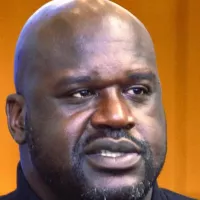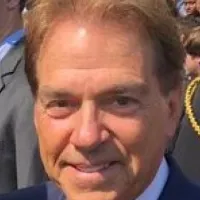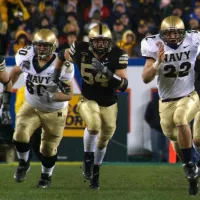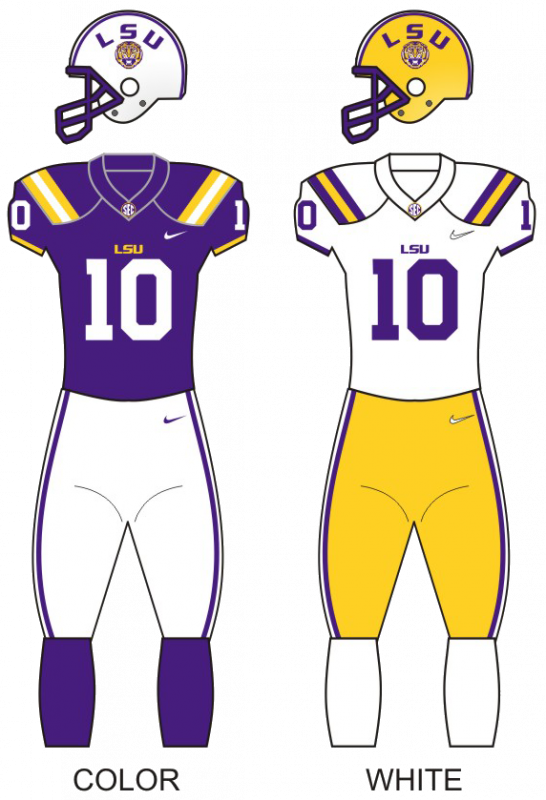The LSU Tigers football program represents Louisiana State University in college football. Known as the Fighting Tigers, they compete in the Football Bowl Subdivision (FBS) of the National Collegiate Athletic Association (NCAA) and are a member of the Southeastern Conference (SEC). The Tigers have a rich history, marked by national championships and conference titles, solidifying their status as a prominent force in college football. Their home games are played at Tiger Stadium, renowned for its passionate fanbase and intimidating atmosphere. The program has produced numerous NFL players and is known for its strong recruiting base in Louisiana and beyond.
1900: Chavanne rehired
In 1900, Edmond Chavanne was rehired as head coach, posting a 2-2 record.
1900: John J. Coleman's second year
In 1900, John J. Coleman played his second year as a five-year letterman for LSU.
1901: John J. Coleman's third year
In 1901, John J. Coleman played his third year as a five-year letterman for LSU.
1901: Borland becomes head coach
In 1901, W. S. Borland replaced Chavanne as head coach, leading the team to a 5-1 season. LSU protested that Tulane used a professional player during the game.
1902: John J. Coleman's fourth year
In 1902, John J. Coleman played his fourth year as a five-year letterman for LSU.
1902: Longest season to date
The 1902 season was the longest yet for the Tigers, with seven games and the most games on the road. LSU upset Texas and avenged a loss to Auburn, losing only to Vanderbilt.
1903: John J. Coleman's fifth year
In 1903, John J. Coleman played his fifth year as a five-year letterman for LSU.
1903: Record breaking season
The 1903 season broke the previous season's record for most games played with nine games.
1904: Killian coaches Tigers
In 1904, Dan A. Killian coached the Tigers. Rene A. Messa made All-Southern teams.
1906: Killian coaches Tigers
In 1906, Dan A. Killian continued to coach the Tigers.
1908: National Champions selected
In 1908, LSU was selected as national champions by NCAA-designated major selectors.
1908: Dwyer was an assistant at Auburn
In 1908, Pat Dwyer was an assistant at Auburn.
1908: Undefeated Season
In 1908, the team posted an undefeated 10-0 record. Quarterback Doc Fenton led the nation in scoring with 132 points, posting then school records of 36 extra points and 6 field goals.
1909: Strong campaign
In 1909, under coaches Joe Pritchard and John W. Mayhew, LSU had a strong campaign, with their only conference loss coming to SIAA champion Sewanee.
1910: Disastrous Year
1910 was a disastrous year for the Tigers. The team lost some star power after a strong 1909 campaign.
1911: Dwyer Hired
In 1911, Pat Dwyer, an assistant at Auburn, was hired.
1913: 1913 Season
In 1913, the team lost only to SIAA champion Auburn by a touchdown. Fullback Alf Reid made All-Southern.
1916: All-America Team Honorable Mention
In 1916, Walter Camp gave Phillip Cooper honorable mention on his All-America team. Irving Pray and Dana X. Bible also served as the Tigers coach.
1917: Wayne Sutton coached
In 1917, Washington's Wayne Sutton coached the team to a 3-5 record.
1919: Pray Coaches Full Seasons
In 1919, Irving Pray coached a full season.
1919: LSU-Tulane series begins
In 1919, the LSU-Tulane football series began, which was played continuously until 1994.
1921: Bocock Led Tigers
In 1921, Branch Bocock led the Tigers for the season, in which they were beaten only by Tulane.
1922: Pray Coaches Full Seasons
In 1922, Irving Pray coached a full season, the inaugural season of the Southern Conference (SoCon).
1923: Donahue Becomes Head Coach
In 1923, Mike Donahue came from Auburn to be the seventeenth head football coach at LSU.
1923: State Field Use Ends
In 1923, State Field stopped being the home stadium for the LSU Tigers football team. It had been used since 1893 and was located on the old downtown Baton Rouge campus of LSU.
1923: End of First Era
In 1923, the first era of LSU and Texas A&M matchups concluded, with A&M holding a 7-3 record over LSU and two tie games.
1924: First Game at Tiger Stadium
In 1924, the first game was played at Tiger Stadium on Thanksgiving Day against Tulane. Tulane defeated the Tigers 13-0.
1924: Tiger Stadium Opens
In the fall of 1924, Tiger Stadium opened its gates with a seating capacity of 12,000. LSU hosted Tulane in the season finale.
1927: Donahue Resigned
In 1927, Mike Donahue resigned as head coach after the season.
1928: Cohen's First Year
In 1928, Russ Cohen's first year at LSU. Led by All-Southern captain Jess Tinsley, Tigers posted a 6-2-1 record.
1929: Tie to rival Tulane
In 1929, LSU tied to rival Tulane.
October 3, 1931: First Night Game in Tiger Stadium
On October 3, 1931, the tradition of playing night games in Tiger Stadium began when LSU defeated Spring Hill 35–0. Night games were started to avoid the heat and humidity of afternoon games, scheduling conflicts with Tulane and Loyola football, and give more fans the opportunity to see the Tigers play.
1932: Southern Conference Championship
In 1932, under Biff Jones, the team tied for the Southern Conference championship in its last season as a member of the conference.
1933: Founding Member of SEC
In 1933, LSU became a founding member of the Southeastern Conference (SEC).
1933: Team led by Jack Torrance
In 1933, LSU lost no games and was led by track and field athlete Jack Torrance.
1934: Jones Resigns
In 1934, Biff Jones resigned after the season after a heated exchange with Louisiana senator Huey P. Long. As a sophomore, Tinsley had a 65-yard pass reception against Southern Methodist University.
1935: Stable Coaching Period Begins
From 1935, the LSU team experienced a period of stability with only four coaches over the next 44 years.
1935: Williamson System Co-Champions
In 1935, LSU is recorded as being the Williamson System co-champions.
1935: SEC Championship and Sugar Bowl Appearance
In 1935, under coach Bernie Moore, LSU won their first Southeastern Conference (SEC) Championship and played in their first Sugar Bowl game. End Gaynell Tinsley was named a consensus All-American.
1936: National Champions selected
In 1936, LSU was selected as national champions by NCAA-designated major selectors.
1936: LSU Tigers finish No. 2 in Final AP Poll
In 1936, the LSU Tigers football team finished the season ranked No. 2 in the Final Associated Press Poll (AP Poll).
1936: SEC Championship and Largest Margin of Victory
In 1936, the team won their second SEC Championship. LSU's largest margin of victory came on November 21, in a game against USL, with a final score of LSU 93, USL 0.
1939: Kavanaugh's Touchdown Game
In 1939, in a game against Holy Cross, Ken Kavanaugh caught four touchdown passes in the 26-7 win. Kavanaugh was a consensus All-America selection.
1943: LSU does not play Mississippi State
In 1943, LSU did not play Mississippi State, as State did not field a team during World War II.
1943: Van Buren leads NCAA in scoring
In 1943, Steve Van Buren led the NCAA in scoring with 98 points.
1944: LSU wins 1944 Orange Bowl
In 1944, LSU won the Orange Bowl against Texas A&M with a score of 19-14.
1946: Leather Helmets
Prior to 1946, LSU wore leather helmets.
1947: Old Gold Helmet
From 1947, LSU wore an old gold helmet.
1948: Moore Retired
In 1948, Bernie Moore retired as head coach. Gaynell Tinsley was promoted to replace him.
1949: Sugar Bowl Appearance
In 1949, LSU made it to the Sugar Bowl, where it was swamped by Oklahoma. Tinsley became the first person to participate in the Sugar Bowl as both a player and a head coach.
1949: LSU Dominance Begins
Starting in 1949, LSU began to dominate the series against Tulane after a competitive start.
1953: McClendon Joins as Assistant
In 1953, Charles "Charlie" McClendon began his tenure as an assistant coach for LSU.
1954: Start of Losing Seasons
1954 marked the start of LSU's first time with three consecutive losing seasons before 1991.
1955: End of Old Gold Helmet
In 1955, LSU stopped wearing the old gold helmet.
1955: Paul Dietzel Became Head Coach
In 1955, Paul Dietzel became the head coach at LSU.
1955: Goalpost Crossbar
The crossbar from the goalposts which stood in the north end zone of Tiger Stadium from 1955 is now mounted above the door which leads from LSU's locker room onto the playing field. The crossbar is painted with the word "WIN!", and superstition dictates every player entering the field touch the bar on his way out the door.
1956: End of Losing Seasons
1956 marked the end of LSU's first time with three consecutive losing seasons before 1991.
1956: Taylor Led SEC in Scoring
In 1956, Jim Taylor led the SEC in scoring.
1956: Yellow-Gold Helmet Introduced
In 1956, head coach Paul Dietzel changed the color of the helmet to a yellow-gold similar to that of the Green Bay Packers, featuring a white one-inch center stripe with purple three-quarter inch flanking stripes.
1956: Last Win Over Arkansas
In 1994, LSU beat Arkansas, which was its first regular-season win in the series since 1956.
1957: Jersey Numbers on Helmets
From 1957, LSU added jersey numbers to the sides of the helmet.
1957: White Jerseys at Home for Good Luck
In 1957, Dietzel had LSU wear white at home for good luck against a ranked Georgia Tech team because Georgia Tech's team had long been known for wearing white at home. LSU won the game and he continued that tradition for the 1958 season and LSU went on to win the national championship that year.
1957: Taylor Led SEC in Scoring
In 1957, Jim Taylor was an All-American and led the SEC in scoring.
1957: "TV" Numerals Introduced
In 1957, coach Paul Dietzel introduced the current style of jerseys with "TV" numerals on the shoulders.
1958: White Jerseys at Home
In 1958, Coach Paul Dietzel decided that LSU would wear white jerseys for home games, after wearing white at home against a ranked Georgia Tech team in 1957 for good luck. Since the 1958 championship season, LSU continued to wear white jerseys at home games through the 18-year tenure of Charles McClendon.
1958: National Championship
In 1958, LSU claimed their first national championship.
1958: National Championship and Three-Platoon System
In 1958, Paul Dietzel introduced the "three-platoon system", and the team won the school's first claimed national championship, beating Clemson in the Sugar Bowl.
1958: LSU Tigers finish No. 1 in Final AP and Coaches' Poll
In 1958, the LSU Tigers football team finished the season ranked No. 1 in the Final Associated Press Poll (AP Poll) and the Final Coaches' Poll.
1958: Undefeated Season
In 1958, the LSU Tigers, under head coach Paul Dietzel, cruised to an undefeated season. With a 10–0 regular season record, LSU was crowned national champion by the Associated Press and the Coaches' Poll (UPI), as well as by 37 other selectors.
1959: Heisman Trophy
In 1959, Billy Cannon won the Heisman Trophy.
1959: Cannon's Halloween Run and Heisman Trophy
In 1959, Billy Cannon won the Heisman Trophy. Late in the game on Halloween between LSU and Ole Miss, Cannon returned a punt 89 yards for a TD, resulting in a 7-3 victory for LSU.
1959: Sugar Bowl win over Clemson
In 1959, LSU capped their undefeated 1958 season with a 7-0 Sugar Bowl victory over Clemson. This shutout victory over #12 Clemson was convincing and highlighted LSU as the only team in the country to go undefeated.
1959: Numerals Moved to Sleeves
In 1959, the "TV" numbers were moved to the sleeves of the jerseys.
1959: LSU Tigers ranked No. 1 in Pre-season AP Poll
In 1959, the LSU Tigers football team was ranked No. 1 in the Pre-season Associated Press Poll (AP Poll).
1960: Billy Cannon drafted into NFL and AFL
In 1960, Billy Cannon was drafted into both the National Football League (NFL) and the American Football League (AFL).
1961: Dietzel Leaves for Army
After the 1961 season, Dietzel departed from LSU to take a position with Army.
1961: LSU stops playing at Ole Miss campus
In 1961, LSU stopped playing football games on the Ole Miss campus in Oxford, Mississippi. The games were instead played at Mississippi Veterans Memorial Stadium in Jackson.
1962: National Champions selected
In 1962, LSU was selected as national champions by NCAA-designated major selectors.
1964: Pregame show Created
In 1964, Louisiana State University Tiger Marching Band "pregame show" was created, and revised over the next nine years into its current format.
1965: Moreau Breaks Field Goal Record
In 1965, Doug Moreau surpassed Fenton's record by achieving more than six field goals.
1966: LSU Defeats Arkansas in Cotton Bowl
In the 1966 Cotton Bowl, LSU, an unranked team, achieved a 14–7 victory over undefeated and second-ranked Arkansas, thus ending Arkansas's 22-game winning streak.
1970: Last SEC Title Before 1986
1970 was the last time LSU secured an outright SEC title before their win in 1986.
1971: End of Jersey Numbers on Helmets
In 1971, LSU stopped using jersey numbers on the side of helmets.
1972: LSU Wins Controversial Game Against Ole Miss
In 1972, LSU secured a 17-16 victory against Ole Miss with a touchdown pass in the final seconds after a disputed clock decision, leading to the creation of "One Second Blues" on the album "Hey Fightin' Tigers".
1972: Names Added to Jerseys
In 1972, names were added to the backs of the jerseys.
1972: First Logo Introduced on Helmet
In 1972, the first logo was introduced on the helmets, which was a tiger head inside a purple circle with LSU written underneath the tiger head.
1974: Smallest Death Valley Crowd
On November 12, 1994, LSU lost to Southern Miss in front of the smallest Death Valley crowd since 1974.
1975: End of Second Era
In 1975, the second era of LSU and Texas A&M matchups concluded, with LSU winning 19 games to A&M's 7 and one tie game.
1977: Current Helmet Introduced
In 1977, LSU introduced its current helmet, featuring the curved LSU lettering written above the Tiger head logo.
1979: Rein Hired to Replace McClendon
Following the 1979 season, NC State head coach Bo Rein was hired to take over for McClendon as LSU's head coach.
January 10, 1980: Bo Rein's Death in Plane Crash
On January 10, 1980, newly appointed LSU head coach Bo Rein tragically died in a plane crash during a recruiting trip, leaving no survivors.
January 1980: Rein's Recruiting Trip
In January 1980, Bo Rein, the newly appointed head coach for LSU, undertook a recruiting trip to Shreveport, Louisiana.
1980: Jerry Stovall Hired as Head Coach
In 1980, Jerry Stovall was appointed as the head coach, succeeding Rein.
1980: Purple Face Masks Introduced
In 1980, purple face masks were introduced on the helmets.
1981: LSU's First National Primetime Game on CBS
In 1981, LSU played its first national primetime game on CBS.
1982: Last Time Wearing White Jerseys
Prior to being allowed to wear white jerseys in 1995, the last time LSU wore white jerseys at home was 1982.
1983: Mandate to Wear Purple at Home
From 1983, LSU was mandated to wear purple jerseys at home due to an NCAA rule requiring the visiting team to wear white jerseys.
1983: Jim Hawthorne Becomes 'Voice of the Tigers'
In 1983, Jim Hawthorne began his career as the radio play-by-play announcer for LSU football, becoming known as the 'Voice of the Tigers', a role he held until 2016. LSU finished the 1983 season with a 4-7 record, leading to Stovall's dismissal.
1983: Rule Prohibiting White Jerseys
Prior to the 1995 season, DiNardo petitioned the NCAA to reverse a rule which had been in place since 1983 that prohibited teams from wearing white jerseys at home.
1984: Sugar Bowl Berth
In 1984, LSU secured a Sugar Bowl berth following Florida's NCAA violations and postseason ban.
1984: Mike Archer Joins as Assistant Coach
In 1984, Mike Archer became an assistant coach at LSU, after being a player and assistant coach at Miami.
1984: Goalpost Crossbar
The crossbar from the goalposts which stood in the north end zone of Tiger Stadium through 1984 is now mounted above the door which leads from LSU's locker room onto the playing field. The crossbar is painted with the word "WIN!", and superstition dictates every player entering the field touch the bar on his way out the door.
1985: Arnsparger Frustrated by Scandals
By 1985, Arnsparger expressed frustration with LSU athletic department scandals, particularly involving basketball coach Dale Brown.
1985: Arnsparger's Defensive Coordinator
In 1985, Mike Archer served as Arnsparger's defensive coordinator.
1986: Last Sugar Bowl Appearance Before 2001
2001 was the first time LSU played in the Sugar Bowl since 1986.
1986: LSU Wins SEC Title
In 1986, LSU secured the school's first outright SEC title since 1970, though marred by a loss to Miami University.
1986: Arnsparger's Defensive Coordinator
In 1986, Mike Archer served as Arnsparger's defensive coordinator.
1987: LSU Finishes Season Ranked #5
In 1987, LSU concluded the season ranked #5 in major polls with a 10-1-1 record, their first 10-win season in over 25 years.
1987: White Jerseys as Home Team
In 1987, LSU wore white jerseys as the designated home team for the Sugar Bowl vs. Nebraska and Gator Bowl vs. South Carolina.
1987: Archer Replaces Arnsparger
In 1987, Mike Archer succeeded Bill Arnsparger as LSU's head coach when Arnsparger left for Florida.
1988: LSU continues to not play at Ole Miss campus
In 1988, LSU continued to play Ole Miss at Mississippi Veterans Memorial Stadium in Jackson, maintaining the hiatus from the Ole Miss campus.
1988: "The Earthquake Game"
In 1988, LSU defeated No. 4 Auburn 7–6 with a late touchdown pass, causing an earthquake recorded by a seismograph and later dubbed "The Earthquake Game" by ESPN.
1988: Bowl Bid Opportunity
In 1993, LSU had a chance at its first bowl bid since the end of the 1988 season.
1989: Losing Season
In 1989, LSU had a losing season.
1989: LSU plays at Ole Miss campus again
In 1989, LSU played at the Ole Miss campus in Oxford for the first time in 29 seasons.
1990: Archer Resigns
After back-to-back losing seasons, Mike Archer was forced to resign in 1990.
1991: Hallman's First Season and Player Incident
In 1991, Curley Hallman's first season, LSU football players were accused of fighting with basketball players, including Shaquille O'Neal. LSU finished 5-6, marking their second time with three consecutive losing seasons.
1991: LSU vs. Ole Miss in Jackson
In 1991, LSU and Ole Miss returned to playing their contest in Jackson.
1991: LSU plays Auburn
In 1991, LSU played Auburn.
1991: LSU Indoor Practice Facility Built
In 1991, the LSU Indoor Practice Facility was built. It's a climate-controlled 82,500 square feet facility connected to the Football Operations Center and holds the 100-yd Anderson-Feazel LSU indoor field with Momentum Field Turf by SportExe.
1992: LSU in SEC West Division
From 1992 to 2023, LSU played in the West Division of the SEC, playing each opponent in the division each year along with several teams from the East Division.
1992: LSU vs. Ole Miss in Jackson
In 1992, LSU and Ole Miss played in Jackson for the last time before permanently moving the series to Oxford.
1992: Divisional Play in SEC
Since 1992, when the SEC began divisional play, LSU has won or shared the SEC West title 10 times, and is 5–2 in the SEC Championship game.
September 17, 1994: Howard's Interceptions Doom LSU
On September 17, 1994, LSU led Auburn but multiple interceptions by Jamie Howard, including two returned for touchdowns, led to a 30-26 loss and started the end for Hallman.
December 13, 1994: DiNardo Hired as Head Coach
On December 13, 1994, LSU hired Gerry DiNardo as head coach.
1994: Previous Time Wearing Purple Jerseys at Home
In 1994, LSU last wore purple jerseys at home for an SEC game vs Alabama before the 2015 game vs South Carolina.
1994: LSU moves series permanently to Vaught-Hemingway Stadium
In 1994, the LSU-Ole Miss series permanently moved to Vaught-Hemingway Stadium in Oxford after the 1991 and 1992 games were played in Jackson.
1994: LSU-Tulane series ends
In 1994, the LSU-Tulane football series ended after being played continuously since 1919.
1994: End of Mandate to Wear Purple at Home
In 1994, the mandate for LSU to wear purple jerseys at home ended.
1994: SEC Legend Recognition Begins
Starting in 1994, the Southeastern Conference annually honored one former football player from each of the member schools as an "SEC Legend".
1995: Purple Pants at Kentucky
For a 1995 game at Kentucky, the Tigers wore purple pants, which had no stripes and a tiger head logo on the left thigh. LSU lost the game 24–16 and the pants were never worn again.
1995: White Jerseys and Upset Win
In 1995, LSU petitioned to wear white jerseys at home for the first time since 1982 and upset No. 5 Auburn in the "Bring Back the Magic" Game and beat Michigan State in the Independence Bowl.
1995: Return of White Jerseys at Home
In 1995, LSU's new coach, Gerry DiNardo, was determined to restore LSU's tradition of white home jerseys. DiNardo personally met with each member of the NCAA Football Rules Committee, lobbying LSU's case. In LSU's first home game with the white jerseys, unranked LSU prevailed in a 12–6 upset victory over No. 6 Auburn.
1995: NCAA Rule Change
In 1995, the NCAA changed the rule to allow the home team to wear white if it obtained prior approval of the visiting team.
1995: End of Third Era
In 1995, the third era of LSU and Texas A&M matchups concluded, with A&M winning 6 games to LSU's 4.
1996: Gold Jerseys vs. Vanderbilt
In 1996, LSU wore gold jerseys vs. Vanderbilt.
1996: White Pants on 16 Occasions
Since 1996, LSU has worn white pants on 16 occasions.
1997: ESPN College Gameday at LSU
In 1997, ESPN College Gameday was broadcast from LSU, marking the first time since 1997 that the show was on location. The presence of ESPN College Gameday highlighted the significance of the game.
1997: LSU Defeats No. 1 Florida
In 1997, LSU defeated No. 1 Florida 28-21, leading to Kevin Faulk's Sports Illustrated cover.
1997: Gold Jerseys vs. Notre Dame
In 1997, LSU wore gold jerseys vs. Notre Dame in the Independence Bowl.
1997: SEC Jersey Color Choice
In 1997, the Southeastern Conference ruled the home team would have choice of jersey color without consent of the visitors for conference games.
1998: Season Start and Losses
In 1998, LSU started the season ranked No. 9 but suffered losses to Georgia and Florida.
November 15, 1999: DiNardo Fired as Head Coach
On November 15, 1999, LSU fired Gerry DiNardo as head coach after a loss to Houston, with Hal Hunter taking over as interim coach.
December 1, 1999: Nick Saban Hired as Head Coach
On December 1, 1999, LSU hired Nick Saban as head coach.
1999: Coaching Changes
From 1980 to 1999, LSU had eight coaches after having only four from 1935 to 1979.
1999: South Dakota Learjet Crash
The 1999 South Dakota Learjet crash had similarities to the Bo Rein plane crash.
2000: Resurrection of Purple Jerseys
In 2000, Nick Saban resurrected purple jerseys for the second game of the season vs. Houston.
2000: LSU starts 20-year bowl game streak
Since 2000, LSU has played in 20 straight bowl games, which is the fourth longest active streak in the NCAA and second longest in the Southeastern Conference.
December 2001: George O'Leary's Short Tenure at Notre Dame
In December 2001, George O'Leary had a brief five-day stint as head coach at Notre Dame.
2001: SEC Championship Victory
In 2001, LSU defeated No. 2 Tennessee in the SEC Championship, earning a Sugar Bowl spot.
2002: Practice Facility Named After Charles McClendon
In 2002, the LSU Tigers football practice facility was named after former LSU head coach and College Football Hall of Fame member, Charles McClendon, becoming the Charles McClendon Practice Facility.
2002: LSU Consistently Ranked in Top 25 for Recruiting
Since 2002, LSU has consistently been ranked in the Top 25 in recruiting by multiple ranking services.
2003: 2003 National Championship
In 2003, LSU claimed the national championship after winning a postseason bowl national championship game.
2003: LSU Outlasts Georgia
In 2003, No. 11 LSU defeated No. 7 Georgia, 17–10, in a game known as the "Let the Valley Shake" Game. Quarterback Matt Mauck connected with Skyler Green for a late touchdown, and Corey Webster sealed the win with an interception. This victory propelled LSU onto the national stage.
2003: LSU Tigers finish No. 1 in Final Coaches' Poll and No. 2 in AP Poll
In 2003, the LSU Tigers football team finished the season ranked No. 1 in the Final Coaches' Poll and No. 2 in the Final AP Poll.
2004: BCS National Championship Game Win
In 2004, LSU beat Oklahoma 21–14 in the Sugar Bowl designated as the BCS National Championship Game.
2004: LSU Wins BCS National Championship
In 2004, LSU secured its second national title by defeating Oklahoma 21–14 in the 2004 Sugar Bowl (BCS National Championship Game).
2004: Purple Jerseys vs. Oregon State
In 2004, LSU wore purple jerseys in the season opener vs. Oregon State because Oregon State did not want to wear its black jerseys in the Louisiana heat.
2005: Loss in Capital One Bowl and Saban Leaving
In 2005, the LSU Tigers finished with a 9–3 record and a No. 16 ranking after losing the 2005 Capital One Bowl on a final play touchdown pass. Prior to the game, coach Saban announced he would leave LSU to become the head coach for the Miami Dolphins.
2006: LSU and Tulane renew annual series
In 2006, LSU and Tulane renewed their annual football series.
2006: 75th Anniversary of Night Football
In 2006, LSU celebrated its 75th year of playing night football in Tiger Stadium.
2006: LSU Beats Tennessee
In 2006, Quarterback JaMarcus Russell completed a touchdown pass to Early Doucet with 9 seconds remaining to secure a victory against Tennessee in Neyland Stadium. This followed a strong performance by Tennessee's backup quarterback, Jonathan Crompton.
2006: LSU Football Operations Center Built
In 2006, the LSU Football Operations Center was built, providing an all-in-one facility that includes the Tigers locker room, players' lounge, Peterson-Roberts weight room, training room, equipment room, video operations center and coaches offices.
2007: JaMarcus Russell drafted into NFL
In 2007, JaMarcus Russell was drafted into the National Football League (NFL).
2007: 2007 National Championship
In 2007, LSU claimed the national championship after winning a postseason bowl national championship game.
2007: LSU Defeats Florida and Wins National Championship
In 2007, No. 2 LSU defeated No. 9 Florida in a highly anticipated game where Tim Tebow made a "telephone" hand gesture to the student section. LSU later defeated No. 1 Ohio State to win the BCS national championship. It was LSU's first national primetime game on CBS since 1981.
2007: LSU Tigers finish No. 1 in Final AP and Coaches' Poll
In 2007, the LSU Tigers football team finished the season ranked No. 1 in the Final Associated Press Poll (AP Poll) and the Final Coaches' Poll.
2008: BCS National Championship Game win
In 2008, the LSU Tigers took on the top ranked Ohio State Buckeyes in the 2008 BCS National Championship Game defeating them 38–24, becoming the first team to win two BCS National Championships.
2009: LSU and Tulane end annual series again
In 2009, LSU and Tulane ended their annual football series again, with LSU leading 69-23-7.
December 2010: Mike Haywood's Short Stint at Pittsburgh
In December 2010, Mike Haywood had a short 16-day stint as head coach at Pittsburgh.
2010: LSU defeats Tennessee After Penalty
In 2010, LSU trailed Tennessee 14-10 with seconds left. After a series of penalties and a failed play, Tennessee was penalized for having too many players on the field. With one untimed play, Stevan Ridley scored a touchdown, securing the win for LSU.
2011: National Champions selected
In 2011, LSU was selected as national champions by NCAA-designated major selectors.
2011: Texas A&M enters SEC and Cotton Bowl Classic
In 2011, Texas A&M joined the SEC, marking the beginning of a new era in their rivalry with LSU; LSU prevailed 41-24 in the Cotton Bowl Classic this year.
2011: LSU Tigers finish No. 2 in Final AP and Coaches' Poll
In 2011, the LSU Tigers football team finished the season ranked No. 2 in the Final AP Poll and the Final Coaches' Poll.
2011: First Appearance in SEC Championship Game since 2011
In 2019, LSU had their first appearance in the SEC Championship Game since 2011.
April 27, 2012: LSU Board approves Tiger Stadium expansion
On April 27, 2012, the LSU Board of Supervisors voted unanimously in favor of an $80 million south end-zone upper deck expansion for Tiger Stadium, adding approximately 60 "Tiger Den" suites, 3,000 club seats and 1,500 general public seats.
2012: LSU Tigers ranked No. 1 in Pre-season Coaches' Poll
In 2012, the LSU Tigers football team was ranked No. 1 in the Pre-season Coaches' Poll.
2015: Purple Jerseys in Tiger Stadium vs. South Carolina
In 2015, LSU wore purple jerseys for the first time for an SEC game in Tiger Stadium since 1994, because South Carolina (the designated home team) declared they would wear white jerseys, after the game was moved to Baton Rouge due to flooding in Columbia.
2015: Rumors of Miles' Contract Buy-Out
In 2015, after losing three straight games, there were rumors that LSU would buy-out Les Miles' contract, but he was retained.
September 25, 2016: LSU Fires Les Miles and Cam Cameron
On September 25, 2016, LSU fired head coach Les Miles and offensive coordinator Cam Cameron after a loss to Auburn and a 2-2 start to the season.
2016: Ed Orgeron Becomes Interim and Then Full-Time Head Coach
In 2016, Ed Orgeron was named LSU's interim head coach after Les Miles was fired. He implemented changes to practices and hired new coaches. LSU finished the season 6-2 under Orgeron, and he was later hired as the full-time head coach.
2016: Concerns about Orgeron's Future
In 2016, before the turnaround season, SEC commentator Paul Finebaum believed that it would be Orgeron's last season as coach.
2016: Jim Hawthorne Retires
Jim Hawthorne, the 'Voice of the Tigers', retired from his role as radio play-by-play announcer for LSU football in 2016.
2017: Matt Canada Hired as Offensive Coordinator
In 2017, LSU hired Matt Canada as offensive coordinator. The season began with LSU ranked in the top 15, but after early losses, they finished the year with a 9-4 record.
December 2018: Manny Diaz's Short Stint as Temple Head Coach
In December 2018, Manny Diaz served an 18-day stint as Temple head coach.
2018: Texas A&M defeats LSU in 7 Overtime Game
In 2018, Texas A&M defeated LSU at Kyle Field with a score of 74-72 in a game that went to 7 overtimes, the most overtimes in FBS history.
December 8, 2019: LSU Named No. 1 Seed in College Football Playoff
On December 8, 2019, LSU was named the No. 1 seed in the College Football Playoff after defeating Georgia in the SEC Championship Game.
2019: 2019 National Championship
In 2019, LSU claimed the national championship after winning a postseason bowl national championship game.
2019: National Championship & Heisman Trophy
In 2019, LSU claimed their fourth national championship and Joe Burrow won the Heisman Trophy.
2019: Purple Jerseys vs. Vanderbilt
In 2019, LSU was asked by the Southeastern Conference to wear purple jerseys for its away game vs. Vanderbilt to provide sufficient contrast to the Commodores' gray jerseys.
2019: Fiesta Bowl win against UCF
In 2019, on New Year's Day, LSU defeated UCF in the Fiesta Bowl, giving UCF their first loss since 2016. LSU finished the season with a 10-3 record and were ranked sixth in the nation by the AP poll and seventh by the Coaches poll.
2019: LSU Tigers finish #1 in College Football Playoff ranking
In 2019, the LSU Tigers football team finished No. 1 in the final College Football Playoff ranking.
2019: LSU Tigers finish No. 1 in Final AP and Coaches' Poll
In 2019, the LSU Tigers football team finished the season ranked No. 1 in the Final Associated Press Poll (AP Poll) and the Final Coaches' Poll.
January 13, 2020: LSU Wins National Championship
On January 13, 2020, coach Ed Orgeron led LSU to a national championship victory over Clemson, finishing the season 15-0. The game was held at the Mercedes-Benz Superdome in New Orleans.
2020: Joe Burrow drafted into NFL
In 2020, Joe Burrow was drafted into the National Football League (NFL).
2020: COVID-19 Shortened Season
In 2020, LSU's season was shortened due to the COVID-19 pandemic, and they played a ten-game, all-SEC schedule, finishing 5-5 with three different starting quarterbacks.
2020: College Football Playoff National Championship win
In 2020, the LSU Tigers defeated the Clemson Tigers in the 2020 College Football Playoff National Championship, defeating them 42–25.
2020: Season Update
Through the 2020 season, LSU football team.
March 2021: Sexual Harassment Allegation Against Derrius Guice
In March 2021, a woman testified that she reported sexual harassment by LSU running back Derrius Guice to coach Orgeron, but he took no action and asked her to forgive Guice.
October 17, 2021: Orgeron to Leave LSU at End of Season
On October 17, 2021, LSU announced that they had reached a mutual agreement with coach Ed Orgeron for him to leave the program at the end of the 2021 season.
November 30, 2021: Brian Kelly Named Head Coach
On November 30, 2021, Brian Kelly was named the 34th head coach at LSU, replacing Ed Orgeron, citing LSU's commitment to excellence and rich traditions. His contract more than tripled his previous salary, totaling $95 million over ten years.
2021: LSU Record in Tiger Stadium
As of the 2021 season, LSU has posted a 439-154-18 (.733) mark in Tiger Stadium.
2022: Kelly's Inaugural Season
In 2022, Brian Kelly's first season began with a 24–23 loss to Florida State at the Caesars Superdome. Despite the loss, LSU went on to win four straight games. The Tigers would then go on to beat Florida, upset #7 ranked Ole Miss, upset #6 ranked Alabama 32–31, beat unranked Arkansas 13–10, clinching the SEC West and earning a spot in the 2022 SEC Championship against #1 ranked Georgia. They would go on to win against UAB 41-10 but lose to Texas A&M 23–38.
June 14, 2023: 2024 Conference Schedule Announced
On June 14, 2023, the 2024 conference schedule for the SEC was announced. The SEC will expand the conference to 16 teams and will eliminate its two divisions in 2024.
2023: LSU has 40 Consensus All-Americans
Through the 2023 season, LSU players have been selected as consensus All-Americans on 40 occasions, with 13 selections being unanimous.
2024: SEC Eliminates Divisions
In 2024, the SEC will expand to 16 teams and eliminate its two divisions, causing a new scheduling format for the Tigers to play against the other members of the conference.
2024: LSU leads series against Ole Miss
Through the 2024 season, LSU leads the series against Ole Miss 66-42-4, with two LSU wins vacated.
May 12, 2025: Scheduled Announced
Announced schedules as of May 12, 2025.
Mentioned in this timeline

Basketball is a team sport played on a rectangular court...

Shaquille O'Neal or Shaq is a celebrated American former professional...

Joe Burrow is a professional American football quarterback currently playing...

Nick Saban is an American sportscaster and former football coach...
CBS Broadcasting Inc CBS is a prominent American commercial broadcast...

College football is a popular amateur sport in the United...
Trending

29 minutes ago Yerin Ha's 'Bridgerton' Bathtub Scene Led to Folliculitis, Show Inclusion Unsure.

29 minutes ago Donovan Mitchell Out with Groin Injury, Cavaliers Optimistic About Recovery

30 minutes ago Benny Blanco Responds to 'Dirty Feet' Criticism, Selena Gomez Shows Support

30 minutes ago Reba McEntire Shines in 'Happy's Place', Praised by Belissa Escodebo for Charm

30 minutes ago Jey Uso Attacked Backstage on SmackDown Before Elimination Chamber Match: Injury Angle
1 hour ago Kenyon Sadiq's NFL Combine performance boosts 2026 draft stock; Broncos meeting confirmed.
Popular

Jesse Jackson is an American civil rights activist politician and...

XXXTentacion born Jahseh Dwayne Ricardo Onfroy was a controversial yet...

Michael Joseph Jackson the King of Pop was a highly...

Susan Rice is an American diplomat and public official prominent...

Barack Obama the th U S President - was the...

Hillary Diane Rodham Clinton is a prominent American politician lawyer...
